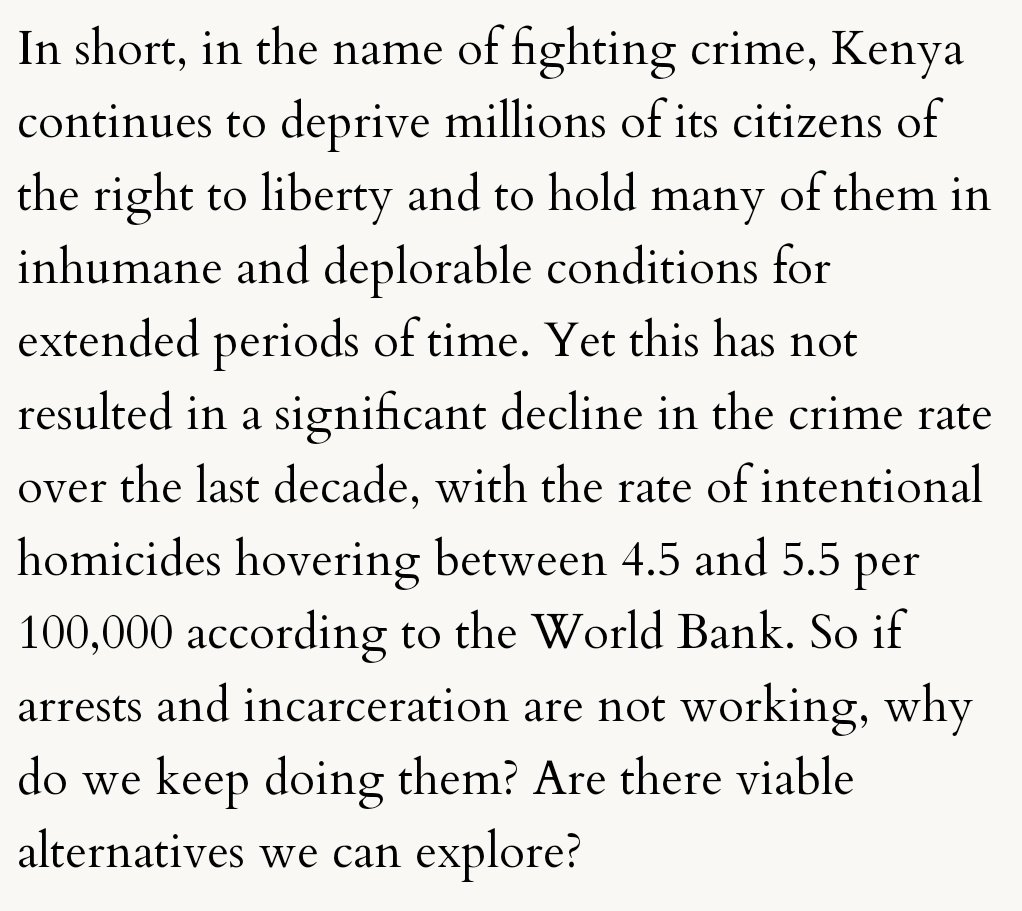
Last year I did a 3-part series for @theelephantinfo on Kenya's prison system that argued it functions nothing like Mwaura would like us to believe. Part 1 was on the terrible colonial root and brutal logic of the whole idea of incarceration.
theelephant.info/culture/2020/0…



theelephant.info/culture/2020/0…
https://twitter.com/KBCChannel1/status/1454059496607780870




Part 2 discussed how the 1950s Emergency and the colonial struggle to suppress the KLFA changed the already brutal nature of Kenyan prisons for the worse.
theelephant.info/features/2020/…



theelephant.info/features/2020/…




Part 3 was about the results of continuing the insane colonial logic of locking up people and alternatives to doing so (cue gasps of astonishment from local solutionists).
theelephant.info/features/2020/…



theelephant.info/features/2020/…




Just re-watched Shawshank Redemption and it is a serious and compelling - and fantastic - indictment of the carceral system. I think future generations will scarcely believe that people once believed locking human beings up on an industrial scale was a sensible response to crime.
The movie's portrayal of institutionalisation is instructive. "These walls are funny. First you hate 'em, then you get used to 'em. Enough time passes, you get so you depend on them. That's institutionalised" says Red. With enough time, societies too can become institutionalised.
As I noted in my first piece on Kenyan prisons, under colonialism, "life outside the prison increasingly came to mirror the conditions within it". Today, many Kenyans are unable to imagine life outside the mental walls of ukoloni, are unable to imagine a world without prisons.
It's not just with prisons. Here are a few illustrations of what Kenyan Vision 2030 administrators imagine as "development". See how similar they are to the fictional Wakanda. Now, where did we all seemingly get the idea that maendeleo is something that looks like a Western city? 





• • •
Missing some Tweet in this thread? You can try to
force a refresh














